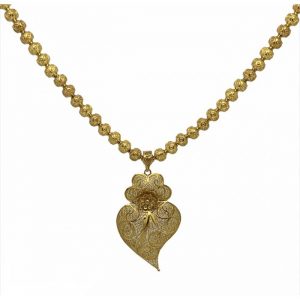August 15th
Although Portugal is a secular state and as such not influenced by any religion, there are numerous days celebrated by the predominant religion in the country that are national holidays. August 15th is one of these days.
On August 15th, Catholics celebrate the day when the mother of Jesus died and, according to their beliefs, ascended to heaven. The Day of the Assumption, or more precisely, the Feast of the Assumption of Our Lady, is a holiday during which many Portuguese participate in festivals and popular pilgrimages to honour the saint who is also considered as the patroness of Portugal.
In a previous blog post, explaining another catholic celebration that is also a national holiday, December 8th or the Feast of Our Lady of the Conception, I explained that the Virgin Mary was crowned Queen of Portugal and has since been considered the patroness or protector of the country.
But it’s not only the Portuguese in general who consider Mary as their protector. Many communities of fishermen and women are also devoted to this saint. In Viana do Castelo, the festival they organize to honour their patron saint, Mary — also known as “Nossa Senhora d’Agonia” (Our Lady of Agony) has become internationally famous.
Festivities of Our Lady of Agony: origins and traditions
According to history, the worship of Our Lady of Agony began in 1674 among fishermen from that region of Portugal and Galicia. However, it was only in 1772 that the tradition of holding a procession started. As the years went by, the fishermen’s pilgrimage grew, incorporating other celebrations such as an agricultural fair and a popular festival with singers and folk dance groups.
In the early 20th century, the region’s inhabitants started parading through the streets in their traditional attire. Nowadays, this tradition remains active as the most important ethnographic parade in the country. The humble procession of fishermen thanking their patron saint is now one of the most well-known religious celebrations in Portugal and beyond.
 These festivities, taking place in the second
week of August to include August 15th, a national holiday, and August
20th, a municipal holiday in Viana do Castelo, include several
parades including
the ethnographic one mentioned earlier
which highlights the several kilograms of
gold used to adorn women’s traditional
dresses. This “fashion show”
loaded with silver and gold necklaces has internationalized this festival,
as well as
the heart and gold
beads that are characteristic
of Viana’s
jewel art works.
These festivities, taking place in the second
week of August to include August 15th, a national holiday, and August
20th, a municipal holiday in Viana do Castelo, include several
parades including
the ethnographic one mentioned earlier
which highlights the several kilograms of
gold used to adorn women’s traditional
dresses. This “fashion show”
loaded with silver and gold necklaces has internationalized this festival,
as well as
the heart and gold
beads that are characteristic
of Viana’s
jewel art works.
The Romaria da Agonia, which has been listed as a celebration of “Public Interest” for Tourism in the region since 2013, is a nostalgic souvenir of a rural Portugal long gone.
Bibliography
Romaria de Nossa Senhora da Agonia, in Wikipedia, available in https://pt.wikipedia.org/wiki/Romaria_de_Nossa_Senhora_da_Agonia, last access on 14.08.2023
Memórias da Romaria d’ Agonia, available in https://www.memoriasdaromaria.pt/, last access on 14.08.2023

